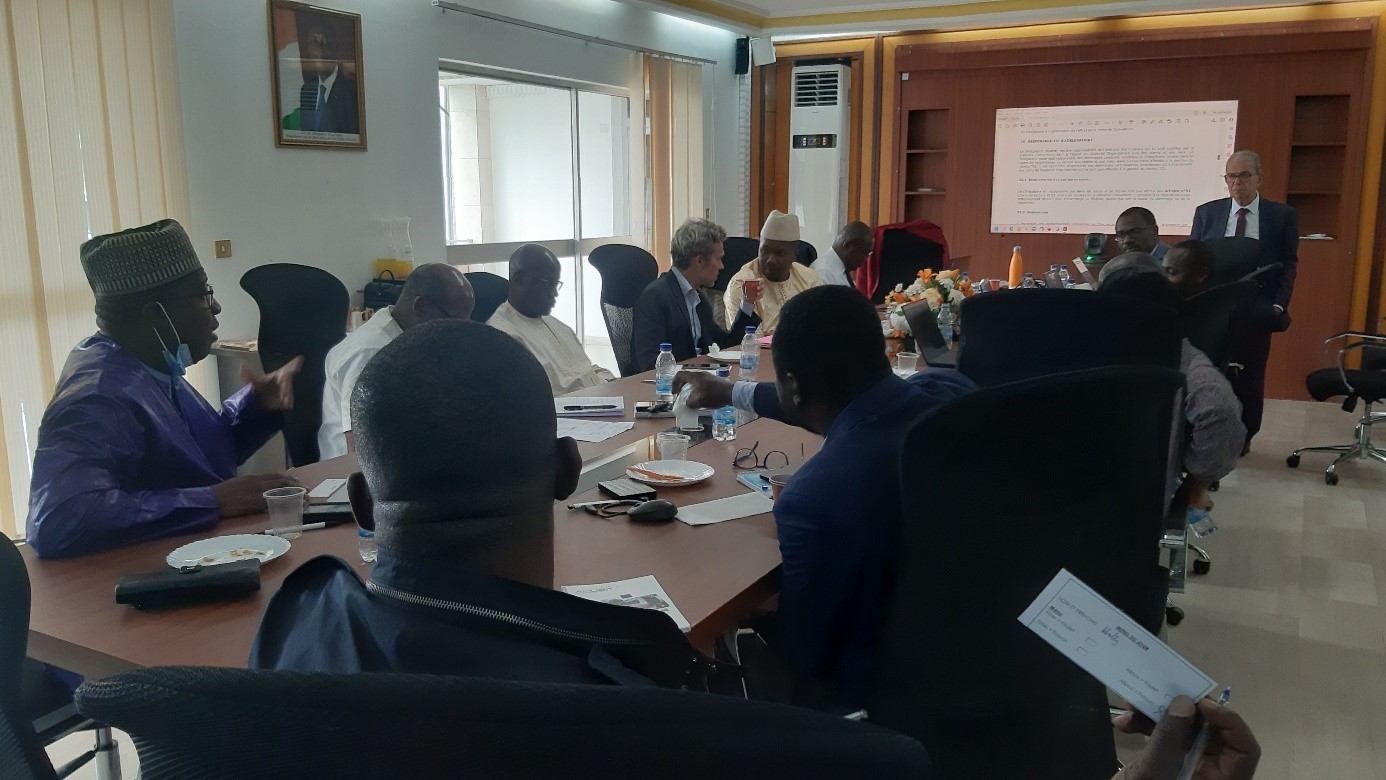Workshop on contracting operators in Abidjan
[CODATU signed in May 2021 a 2 year Convention for a Technical Cooperation with the French Agency for Development (AFD) and the Public Transport Authority in the Greater Abidjan (AMUGA). During 2 years, CODATU supports AMUGA in the strengthening of its governance and in the coordination of transport and mobility projects in the Greater Abidjan through various activities such as good practices exchange and tour studies, capacity building workshops, and support in the writing of terms of reference for strategic studies.]
In the framework of the technical cooperation between CODATU and AMUGA, a workshop took place in person at the headquarters of AMUGA in Abidjan from September 21 to 23, 2022.
This longed-for workshop tackled the strategic topic of how to contract with operators of public transport services. This in a context of revision of the public service delegation Contract with Abidjan’s original bus service operator SOTRA and considering the decision to make about the future operator for the new BRT line (Yopougon-Bingerville).
The workshop took place over three days and gathered representatives from AMUGA, from the Management Unit of the Urban Mobility Project of Abidjan (PMUA) – responsible for the east-west BRT project, representative of the SOTRA legal management department, and representatives from the two others private operators for lagoon transport, STL and CITRANS.
Presented by the CODATU volunteer Senior Expert Raymond Deschamps, the workshop allowed him to introduce attendees to the whole set of required elements to run the transport network in Lyon established by the local Public Transport Authority, Sytral. The participants then discussed the process of the publication of a competitive call to choose a network operator, how a Public Service Delegation contract is created and how to define its objectives based on documents and tangible cases. They also discussed Quality-of-Service measurement and monitoring of operator activity, the contract regarding goods and material resources to produce the offer, and issues regarding the choice of ticketing and pricing systems. The Lyon case study demonstrated an alternate model of transport network management and discussions regularly referred to the existing Ivorian transport system as it is organised in a very different way with consideration of the plan to introduce Line 1 of the metro and 2 routes of BRT (east-west and on the Latrille Boulevard).

At the end of the day, priorities for AMUGA have been identified in the framework of the ongoing negotiations with land and lagoon transport operators:
- the creation of several pricing policy options supported by an AMUGA-contracted consultant to be presented to the Ministry of Transport;
- the definition of the role of AMUGA and its monitoring power over the operators;
- the Quality-of-Service measurement that will depend on AMUGA’s capacity to collect data on the transport offer and on the demand;
- the definition of the financial risk taken on by the Public Transport Authority versus the operators.
